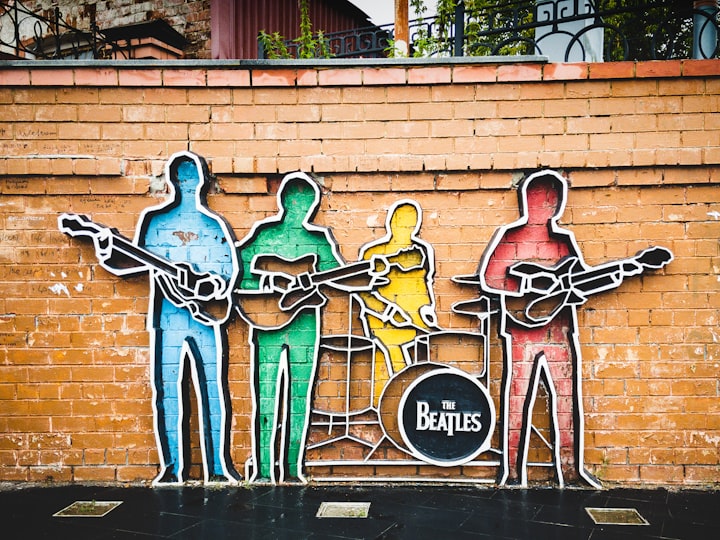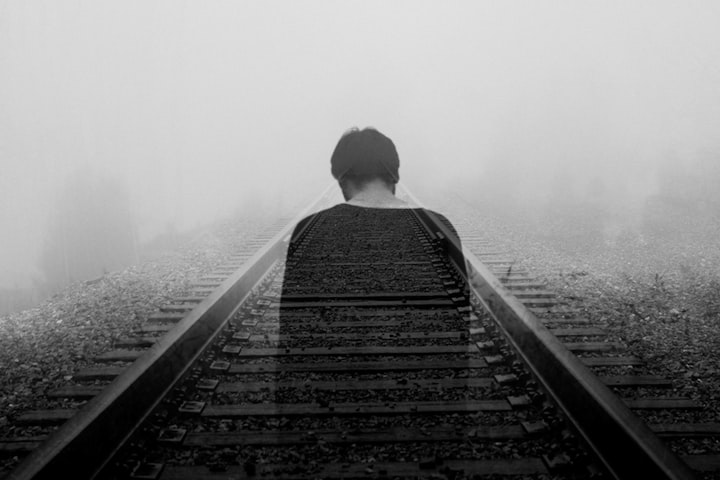Between the Bookends
Following Simon's Post-Adolescence Angst
Hello darkness smile a friend, I've come to talk with you again...
The first time I heard Disturbed's version of Simon and Garfunkel's The Sound of Silence, I was transported back to 1964. The song was released a day before my 14th birthday. It became my theme song.
Simon described the words as "youthful alienation."
Yeah. That was the message I got. Hey, fourteen is a tough age for a lot of people. It just doesn't seem that way at the time. It seems you are the only one lost. You are the only one excluded, omitted, and missing.
I was fourteen, and I wanted to get lost...and I wanted to be found...and... I just wanted.
1964 was not the culmination nor the nadir of momentous events. Nothing seemed to conclude. They just began. They just kept pouring on. It was more the way station between a dead president and a lost war.
The Beatles were all the rage. All that screaming. It smothered the sounds of silence. But only for a while. In time the Beatles succumbed to their own angst. But in 1964, it was all about holding her hand.

It may be the same today. Aren't pubescent teens basically the same in all ages? I mean basically, fundamentally, essentially. They are the same. Whatever the parameters of the contagion affecting young girls today -- mass gender pseudo-dysphoria (my term) -- are probably not much different from what afflicted Salem Village's girls. That has been ascribed to mass hysteria, mass hypnosis, or delusions. What's to say that much of the transgender "craze" today won't one day be attributed to the same diagnosis?
I say that to mean that teens go through hell. Whatever the cause, we all -- to varying degrees -- experience our youths in powerful ways. Suppose we at 70 could sink back into our 14-year-old pimply, nervous smiling, awkward self-inflected social distancing selves. Wouldn't we be Generation Zs at heart? And in behavior. It's just a madras shirt by a different name.

In 1964, all the guys -- the cool guys -- wore madras shirts.
Wow! That is a loaded sentence. Why? Ok. Well. Because of the cool guys. Really?
Indeed, the cool guys -- the guys who were, by some collective understanding of what cool meant and to whom that brand was assigned -- were the "cool" guys -- in 1964 -- wore madras shirts. See what I mean about loaded.
At 14, we were in what was called junior high school. Just as pubescent teens were in the 1600s, they are now, and forever will be, we were, too, in 1964. The madras shirt was a symbol. The symbol attached to "the cool guys" in however that did happen, and it spread.
Those who weren't cool could appear to be by wearing a madras shirt. See? In Salem, those girls who weren't cool could appear to be by accusing some poor soul of witchcraft. Nothing has changed.
In restless dreams I walked alone.
Narrow streets of cobblestone.
'Neath the halo of a street lamp
I turned my collar to the cold and damp
Adolescence in the '60s was different. I know people of all generations feel that way about their decade. But the decade of the '60s was a real historical turning point. It wasn't the only one. But it was the only one happening at the time.
It started with Kennedy. The murder of JFK became a benchmark the way 911 became a benchmark. After Kennedy was shot, all hell broke loose.
Viet Nam may have been the impetus for much of the turmoil in the mid- and late '60s, but a lot more was going on post-JFK:
1964 - Smoking is declared hazardous to your health
1964 - Harlem riots
1964 - Civil Rights Act passes
1965 - Hippies surfaced
1965 - Medicare passes
1965 - Voting Rights Act passed
1965 - Malcolm X assassinated
1965 - Watts Race Riot
1966 - Black Panthers beginning
1967 - Summer of Love (the real one, not Portland 2020)
1967 - Racial unrest in Newark, Detroit
1968 - Tet offensive - Viet Nam
1968 - Robert Kennedy assassinated
1968 - Martin Luther King assassinated
1968 - Chicago riots
1968 - Democrat Convention protest in Chicago
Through all the unrest -- the civil unrest, the racial unrest, the political unrest, the cultural unrest -- was Viet Nam.

By 1966, every boy knew and thought about Viet Nam, at least on some level. My Sound of Silence angst morphed into the music of rebellion, riot, and revolution.
In 1969, Credence Clearwater Revival released a song entitled Fortunate Son that summed up the late 60s for me succinctly.







Comments
There are no comments for this story
Be the first to respond and start the conversation.